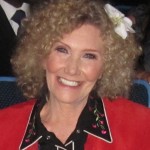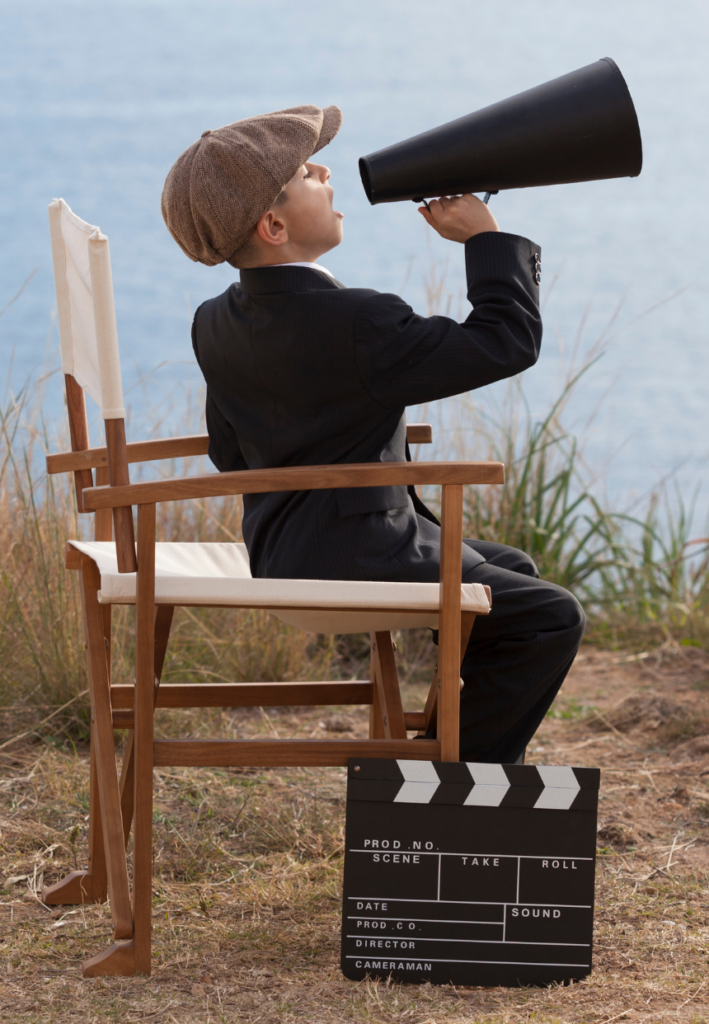In this rapidly evolving age of artificial intelligence, truth is more important—and more fragile—than ever before
by Carole Dean
In an era where artificial intelligence can fabricate history with chilling precision, preserving the integrity of archival materials has never been more urgent. Enter Rachel Antell, a veteran archival producer, who has dedicated her career to ensuring historical accuracy in documentaries.

As the co-founder of Sub-Basement Archival and the Archival Producers Alliance (APA)—which she launched in 2023 alongside Jennifer Petrucelli and Stephanie Jenkins—Rachel is at the forefront of a movement to set ethical standards for archival research. Their mission? To ensure that documentary filmmakers have the tools, knowledge, and best practices to keep their work rooted in verifiable history, even as generative AI challenges our perception of reality.
In a riveting conversation on The Art of Film Funding Podcast, Rachel discussed with me the evolving landscape of archival storytelling. From navigating the complexities of rights and clearances to the growing concerns over AI-generated media, Rachel shared powerful insights on why the role of archival producers is more critical than ever.
Why This Matters Now
“I believe that so far, we still have trust in documentaries—but that’s a very easy thing to lose,” Rachel told me during our conversation.
That trust is built on the assumption that what we see in documentaries is real: witnessed by humans, rooted in primary sources, and based on rigorous research. But when synthetic images become indistinguishable from historical ones, we risk rewriting the past—and, with it, the collapse of audience trust in documentary film as a whole.
Rachel, Jen, and Steph recognized this growing danger and released a groundbreaking set of Best Practices for the Use of Generative AI in Documentary Film, endorsed by over 50 organizations, production companies, and film festivals, as well as dozens of filmmakers.
4 Core Principles for Ethical Use of AI in Documentary Film
The Archival Producers Alliance isn’t against AI. In fact, Rachel emphasizes: “We’re not anti-AI at all. We just want to make sure its use comes with the same intentionality and care that defines the documentary form.”
Here are the four foundational areas APA urges filmmakers to consider:
1. The Value of Primary Sources
Primary sources are the beating heart of documentary. Generative AI can simulate them, but if left unmarked, these simulations can get pulled into the historical record as truth.
“Your film becomes part of the historical record. If you use synthetic imagery without disclosure, you’re potentially muddying history forever.”
2. Transparency
Never confuse the audience. Whether it’s a card at the beginning, a narrator’s note, or visual cues like color washes or special frames—your audience should always know what is real and what is AI-generated.
“A creative AI element is fine. But hiding it undermines the form and betrays the audience.”
Rachel highlights the documentary Another Body by Sophie Compton and Reuben Hamlyn as a powerful example. It used AI to obscure identities—ethically—and had the characters themselves disclose: “The story we’re telling you is true. But the face and voice you’re seeing and hearing are not mine.”
3. Legal Considerations
Laws are still catching up with AI. Filmmakers must consult with legal counsel early—and often—especially when using AI tools that may have scraped copyrighted material.
“The legal landscape is changing fast. You need to know what’s settled and what’s not—especially if your film spans years of production.”
APA recommends clinics at UCLA and Cardozo School of Law for affordable or free legal advice on AI use in film.
4. Ethics of Human Simulation
Recreating historical figures—making them say or do things they never did—is deeply problematic, even if disclosed. There’s a higher ethical threshold for AI-generated reenactments.
“It’s not just about being transparent—it’s about protecting human dignity and avoiding harm to the public understanding of history.”
AI Can Amplify Bias—Know the Risks
AI doesn’t just create content—it reflects bias. Generative models scrape the internet, where historic underrepresentation and stereotypes already exist.
“We’ve seen outputs where all women looked like Angelina Jolie. Why? Because actresses are overrepresented online. Racial and gender bias gets amplified, not corrected.”
Bias also becomes untraceable. Unlike human authorship, algorithmic bias can’t be debated or contextualized. “You can’t interrogate a machine the same way you can a human,” Rachel points out.
APA’s Tools for Filmmakers
To support filmmakers, the APA released a free Generative AI Toolkit on April 2nd at archivalproducersalliance.com. It includes:
- ✅ A customizable cue sheet to track AI-generated content
- ✅ A workflow chart outlining considerations at every stage of production
- ✅ Tips on legal prep, distributor expectations, and maintaining transparency
- ✅ Free, human-translated versions of the APA guidelines in six languages
“If you’re using Gen AI in your film, you should be tracking it like you would music or archival sources. We want to make that easy.”
This Is a Pivotal Moment
The future of documentary is on the line. APA isn’t just advocating for standards—they’re safeguarding trust, history, and accountability.
Rachel reminds us of the scale: “In one year alone, there were 15 billion synthetic images created—matching the entire first 150 years of photography. And that was a year and a half ago.”
How to Take Action
📌 Read the Guidelines – Visit archivalproducersalliance.com to download the best practices.
📌 Use the Toolkit – Available April 2nd.
📌 Subscribe to APA Updates – Stay informed with quarterly newsletters.
📌 Support the Mission – APA is membership-funded and needs support to continue its advocacy and tools development.
And most importantly:
📌 Protect Your Audience’s Trust. This is the currency of your film’s impact.
We Go to Documentaries for Truth
I’ve often said that we go to documentaries for truth.
If that trust is gone, the whole form is in danger. But if we protect it—we preserve the power of film to change the world.

Carole Dean is president and founder of From the Heart Productions; a 501(c)3 non-profit that offers the Roy W. Dean Film Grants and fiscal sponsorship for independent filmmakers. She is creator and instructor of Learn Producing: The Ultimate Course for Indie Film Production. Essential classes for indie filmmakers on how to produce their films.
She hosts the weekly podcast, The Art of Film Funding, interviewing those involved in all aspects of indie film production. She is also the author of The Art of Film Funding, 2nd Edition: Alternative Financing Concepts. See IMDB for producing credits

